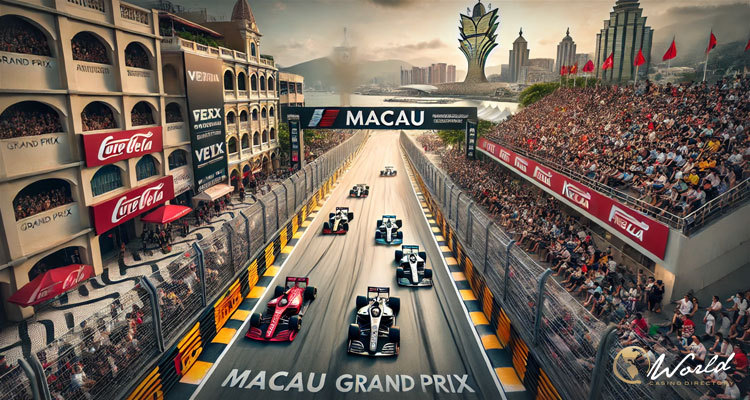The upcoming 71st Macau Grand Prix, scheduled from November 14 to 17, is set against a backdrop of changes both in sponsorship contributions and event format. Macau’s casino operators have pledged a combined sponsorship of MOP100 million (US$12.5 million) for this year’s race, a noticeable reduction from last year’s MOP120 million (US$15 million).
Shifts in sponsorship and event dynamics:
This year marks a strategic shift in the sponsorship dynamics, as contributions from major casino concessionaires like Galaxy, Sands, SJM, and MGM remain consistent at MOP20 million each. However, Melco Resorts & Entertainment and Wynn Macau have scaled back, each offering MOP10 million, down from last year’s uniform contributions. The adjusted sponsorship levels reflect a more conservative investment in this year’s race, accounting for approximately 41.6% of the event’s MOP240 million (US$29.9 million) budget.
Luís Gomes, Director of the Macau Sports Bureau, highlighted the robust international participation expected at the event, with around 180 drivers from 35 countries gearing up to compete. According to Inside Asian Gaming, he said: “The budget for this year’s Grand Prix is MOP$240 million (US$29.9 million) and there are currently about 180 drivers from 35 countries and regions participating.” Despite the reduced sponsorship, the excitement surrounding the diverse lineup of races remains high. This year’s Grand Prix will not include the traditional Formula 3 main event but will introduce the Formula Regional category, reflecting the evolving landscape of junior single-seater racing.
Unlike the 70th anniversary event which extended over six days, this year’s Grand Prix will return to a straight four-day racing format. The streamlined schedule is expected to concentrate the thrill of the event, making every race moment count. The Grand Prix will feature seven events, including the FIA FR World Cup, Macau GT Cup, and the Macau Motorcycle Grand Prix, among others.
The transition from Formula 3 to the Formula Regional category has been noted by Francois Sicard, FIA’s director for single-seater strategy and operations. Sicard mentioned that this change is part of a broader strategy to align junior racing more closely with international standards and help prepare young drivers for global competitions.
Economic impacts and community engagement:
The economic implications of the Grand Prix are significant, with last year’s ticket sales alone generating MOP17 million (US$2.1 million). The event not only boosts local tourism but also plays a crucial role in promoting Macau as a premier destination for international sporting events.
The community and the local economy benefit from the influx of visitors and the global media attention the Grand Prix garners. Additionally, the race serves as a critical platform for emerging talents in motorsports, showcasing their skills on an international stage.
As the 71st Macau Grand Prix approaches, the adjustments in sponsorship and the new racing format set the stage for a dynamic and exciting event. With its rich history and continued appeal, the Macau Grand Prix remains a pivotal event in the global motorsports calendar, ready to offer another exhilarating experience for racing fans around the world.



